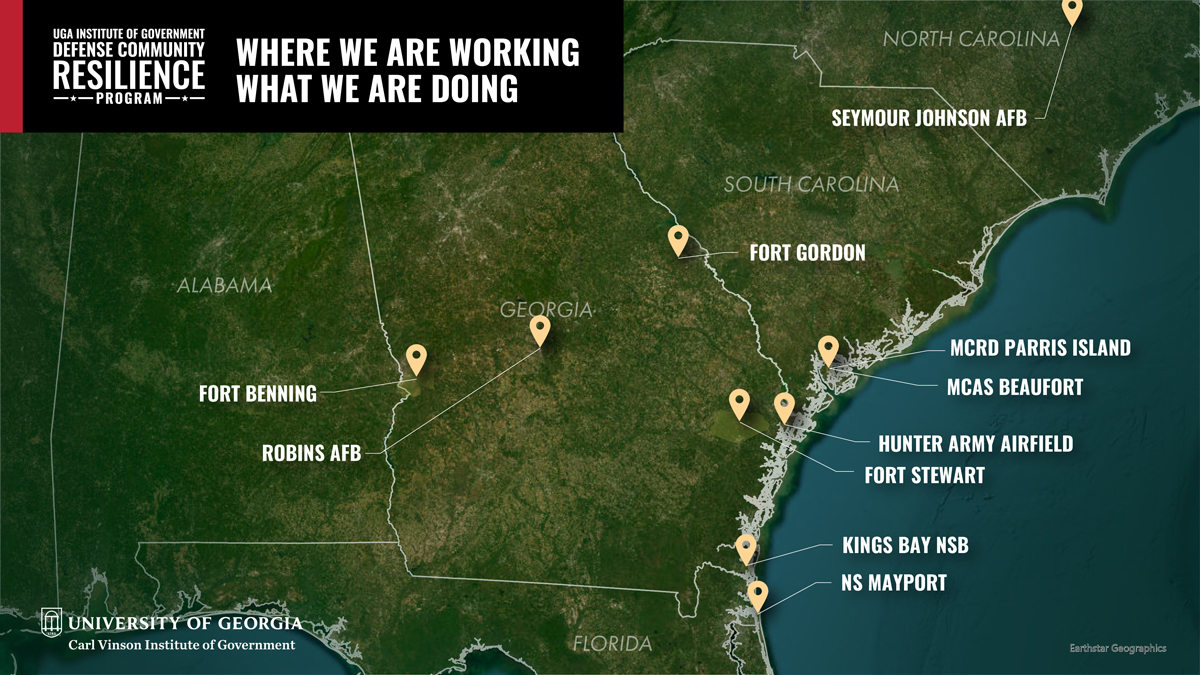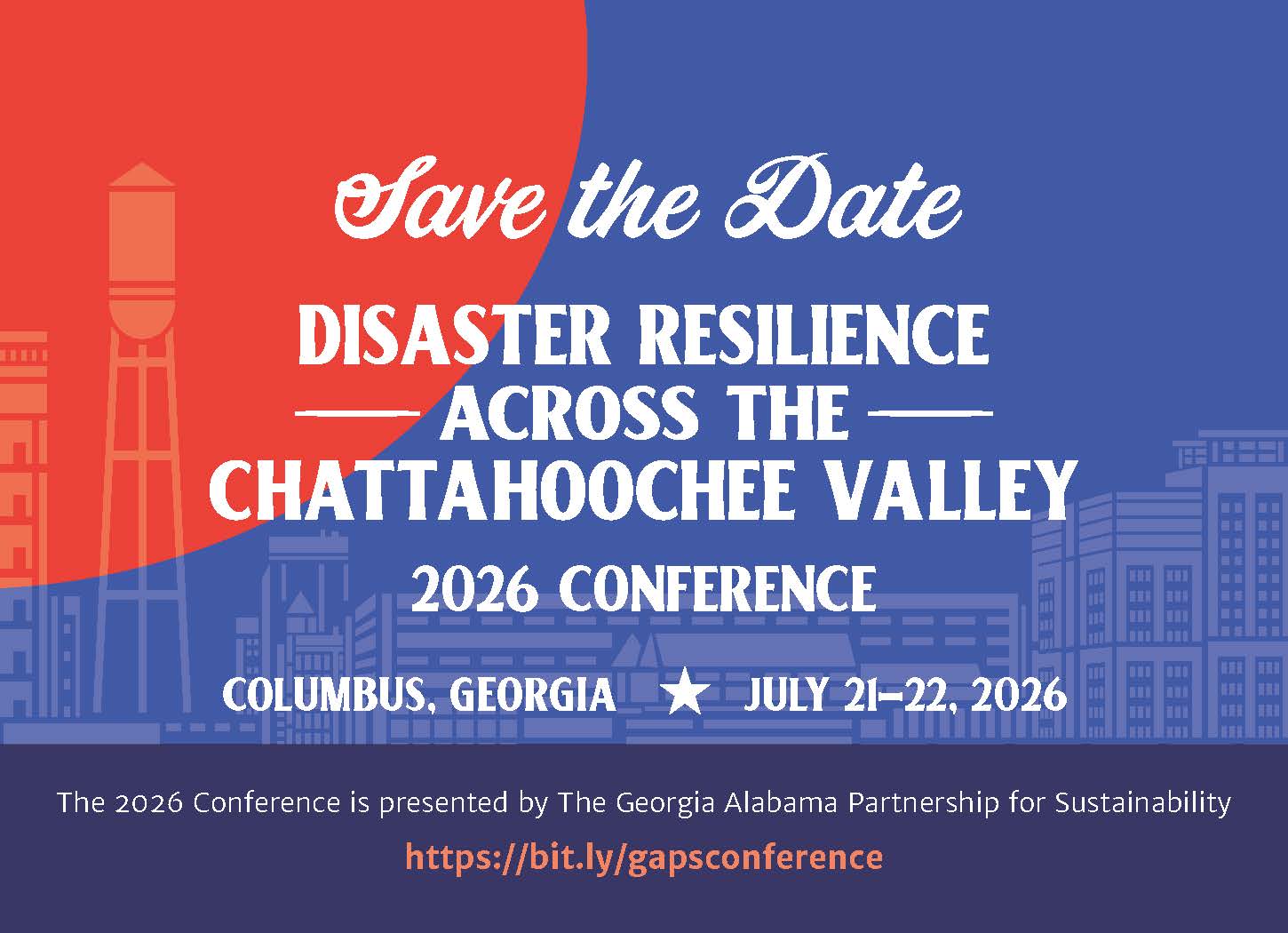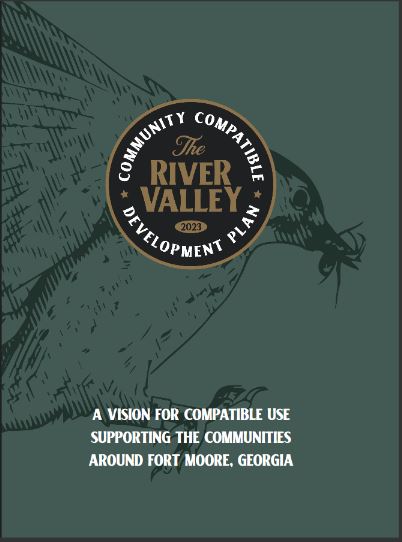UGA Defense Community Resilience Program
UGA Defense Community Resilience Program
Housed at the Carl Vinson Institute of Government, the UGA Defense Community Resilience Program aims to enhance the resilience of both military installations and their surrounding communities by leveraging UGA’s expertise in natural resources management, infrastructure planning, governmental policy, economic development and community engagement. Based in Athens, UGA’s Defense Community Resilience Program employs resilience professionals based in partner defense communities to serve as liaisons with the installations, adjacent communities and UGA’s network of researchers and technical experts from academic, government, private and nongovernmental partners.
 |
What are defense communities?
Defense communities are the cities, counties, regions, and states that support our
nation’s military installations and their respective military missions and that maintain
economic, social, and community ties to the military. |
About DCRP
In 2024, the Defense Community Resilience Program received $5 million in federal funding to support its ongoing work.
The public service faculty and professional staff of the UGA Defense Community Resilience Program (DCRP) serve as a bridge, facilitating connections between military installations and their related civilian defense communities to enhance their shared resilience.
 |
Housed at the UGA Carl Vinson Institute of Government, the DCRP brings multi-disciplinary expertise to bear from across a broad collaborative network. The DCRP team works to remove obstacles and chart the road ahead as communities adapt to ever-increasing challenges.
The Defense Community Resilience Program helps communities and military installations explore mutually beneficial opportunities for economic growth. A recent example is the River Valley Community Compatible Development Plan, which provides a regional roadmap for creating vibrant downtowns, investing in infrastructure and promoting outdoor activities in the rural communities surrounding Fort Moore.
The program also considers solutions within installations. For example, DCRP experts have proposed ways to redirect stormwater runoff on roadways into retention ponds that support native plants and habitats, thereby enhancing the landscape and reducing flooding. Such efforts reflect the military’s commitment to strengthening communities that share borders with its installations.

